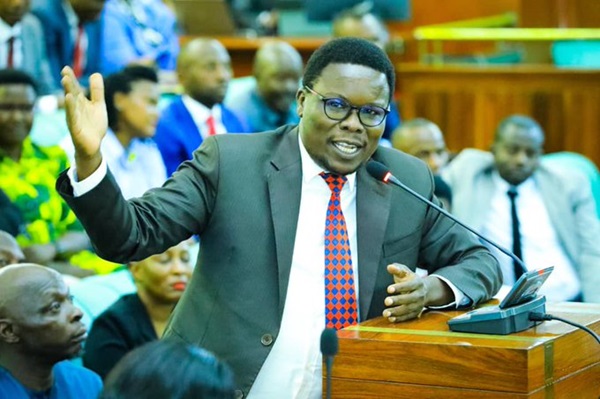
The evolution of “Honourable” suggests a deeper issue in how political titles are perceived and used
COMMENT | Gertrude Kamya Othieno | The title “Honourable” was introduced to Uganda’s Parliament as an import from British tradition. In the UK, “Honourable” denotes a person of high integrity, and failing to meet these standards typically results in losing one’s position. However, in Uganda, the title has shifted from its original intent and now functions more as a term of general respect, similar to the traditional Buganda title “Ow’ekitiibwa.”
In Buganda, “Ow’ekitiibwa” is a title of high respect, traditionally reserved for individuals who have earned it through exemplary service and conduct within the Lukiiko, Buganda’s traditional council. This title reflects a person’s moral standing and contribution to the community. Other nations in Uganda also have equivalent titles that represent their own cultural values of honour and respect. These titles are significant and not easily conferred.
Recently, the meaning of these titles has come into sharper focus. For instance, a Member of Parliament, humorously revealed that he was informed “Ow’ekitiibwa” could be interpreted as “thief” in some contexts. This anecdote highlights how perceptions of titles can change and sometimes lead to misunderstandings. The shift in the meaning of “Honourable” is also notable. Originally intended to signify integrity, the title is now often used even for those involved in scandals, reflecting a broader issue of accountability in Ugandan politics.
This Honarable Member of Parliament @ParliamentofUganda just cracked my ribs off- the issue of language barrier sometimes has lots of implications. @pwatchug
#Owekitibwa means you’re a thief – and he felt so so bad about it
pic.twitter.com/ZqoJnuIuWS
— SK Sylvia (@SKSylviaa) July 24, 2024
I am sorry, because I don’t speak luganda, I only felt what people relate to me. Having now that the title Owekitibwa is a preserve for the honourable, distinguished servants who serve the Kabaka of Buganda, and not people who sit in this Parliament, I condemn anyone who will… https://t.co/FJyKbCClVM pic.twitter.com/YbaL5kTXw5
— Parliament Watch (@pwatchug) July 23, 2024
A case in point is Hon. Agnes Nandutu, who faced legal troubles related to corruption but was later reinstated in her parliamentary role. This situation underscores the disconnect between the title “Honourable” and its intended meaning of accountability and moral integrity. Unlike in the UK, where failing to uphold these standards often results in losing one’s position, in Uganda, the title persists despite legal and ethical issues.
This evolution of “Honourable” suggests a deeper issue in how political titles are perceived and used. The retention of such titles, even in the face of corruption, could indicate a disconnect between the public and the state. It raises questions about whether titles like “Honourable” and traditional terms like “Ow’ekitiibwa” have become mere labels rather than reflections of true service and integrity.
If “Honourable” can be vernacularised in such a manner, it prompts a broader question: could other democratic concepts such as democracy, objectivity, and rationality also be adapted to local contexts, potentially losing some of their original meaning? The challenge lies in ensuring that as these concepts are adapted, they retain their core values of integrity, accountability, and genuine service to the people.
Ultimately, the adaptation of titles like “Honourable” in Uganda reflects significant changes in the political landscape. While linguistic and cultural shifts are natural, it is crucial to preserve the fundamental values these titles were meant to represent. As Uganda continues to navigate its political evolution, the meaning and use of these titles will play a critical role in shaping the future of governance and accountability in the country.
***
 Gertrude Kamya Othieno | Political Sociologist in Social Development (Alumna – London School of Economics/Political Science) | Email – gkothieno@gmail.com
Gertrude Kamya Othieno | Political Sociologist in Social Development (Alumna – London School of Economics/Political Science) | Email – gkothieno@gmail.com
 The Independent Uganda: You get the Truth we Pay the Price
The Independent Uganda: You get the Truth we Pay the Price



